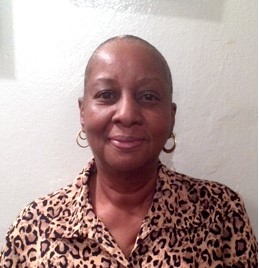We are thankful for Sojourner.
As we approach the holiday season, we want to remember all the amazing work JCCA staff do to repair the world, child by child. Until Thanksgiving, we’ll be taking some time each day to highlight a member of our inspiring team. As the days get shorter and colder, we hope these stories will be a source of brightness and warmth.
Sojourner Smith
Community Social Worker, Edenwald Center
Sojourner Smith has worked with vulnerable children and families for over 35 years, and has been a JCCA staff member for the past four years. She is currently a social worker for Edenwald Center, our residential program in Pleasantville, for boys and girls with behavioral and cognitive difficulties. Born into a family of 12 children, she says, “I guess I’ve always wanted to take care of people—it’s in my nature. I tend to stay up nights worrying about these kids.”
With a caseload of 11 clients, ages 13-19, Sojourner’s role is to make sure that each child leaving care returns to a safe and secure home for trial discharge and does everything in her power to ensure a successful final discharge. Often, because the family had been fragmented during the child’s placement in foster care, challenges that present themselves during reunification can be complex. Partnering with the family to work collaboratively with all resources is crucial to the process and often involves outside service providers, hospitals and the family court system.
Sojourner also works with children who have gone AWOL, those who attempt to fend for themselves on the streets for what can be extended periods of time. After locating a missing child, she must then work with the child toward understanding that a particular environment isn’t safe and encourage reengagement with services. “There are people with predatory natures out there waiting to take advantage of these children who might be coerced into sexual exploitation,” explains Malaika Gutman-Gates, Edenwald’s Director of Social Work. Sojourner adds, “Often a young person who has been living on the streets thinks she’s in control; I try to make it clear that she’s still a child and needs help.”
Antoine, 13, is an example of one of Sojourner’s more gratifying cases, involving the reunification of a child who has cognitive deficits with a mother who also has cognitive challenges. Malaika says, “There are so many layers to this situation. Sojourner has had to educate this parent in understanding adolescent behavior—which is tough enough under the best of circumstances—while also dealing with the parent’s and child’s cognitive challenges. It’s taken so much work to build a relationship between the two of them, but Sojourner is doing it—she’s phenomenal.” “I refuse to give up,” explains Sojourner. “I’m teaching the mother what her responsibilities are and she’s finally getting it!” Antoine has been on trial discharge since March and all are hoping this will be a permanent solution.
At the age of 61, Sojourner has more energy and stamina than many of her younger colleagues. Because she doesn’t have a driver’s license, she travels throughout the five boroughs and Westchester via public transport to meet with clients. “I’m happy to do whatever I can, because when a child is reunited with her family, that’s the best gratification in the world.”
